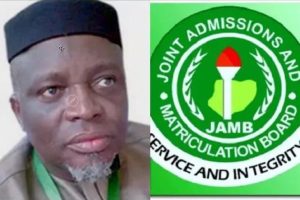
The federal government has announced that exceptionally gifted children under the age of 18 may be permitted to take the West African School Certificate Examinations (WASSCE) and the National Examinations Council (NECO) examinations.
This announcement comes amid controversies surrounding the earlier age limit declared for school candidates to enroll in WAEC, NECO, and Joint Admissions and Matriculation Board (JAMB) in the country.
The Minister of Education, Prof. Tahir Mamman, during a visit to the Federal Government Academy in Suleja on Thursday, said: “We are going to develop criteria to guide what we will call Gifted children.’
Mamman made this announcement while attending to questions on the government’s plans for gifted children, given the government’s new education policy that sets age limits for candidates writing WAEC and NECO examinations.
Following a tour of the National School for the Gifted, Prof. Mamman, accompanied by Minister of State for Education, Dr. Tanko Sununu, addressed the media to announce a two-week extension of the resumption date for students at the Federal Government Academy, Suleja.
He clarified that ongoing renovations at the institution necessitated this decision.
Mamman emphasized that students should not be permitted to return to an environment that is not conducive to learning.
As a result, instead of the original resumption date of Sunday, September 8th, students are now expected to return on the 18th, provided there are no unforeseen issues.
He said: “We cannot have this young children here when there is work ongoing. The plumbing facility, showers, water, and everything else are a bit unstructured because of the ongoing work, so the facility needs to be ready.
“We have granted 10 days which is the embodiment of two weeks. They will make up somehow.”
Worried over the current state of the school, the minister pledges the commitment of the government to provide the needed support to help upgrade the school to what it should be.
Mamman added: “This is the only school of its kind in the country where we are supposed to assemble students who demonstrate special attitude and capacity to come here for special training.
“For us we need to showcase the school and for us to do that, we need to see that the necessary supportive infrastructure is there, that the academic environment is suitable for that purpose.
“Maintenance has been a problem. What we have seen doesn’t answer our expectations of the type of school that it should be. They have achieved some mileage but that is not the destination we are looking at.
The principal has done her bit within the limited resources available to her and it’s probably one of the few places where students are supposed to be here free and not pay anything, unlike some other places where they pay small charges here and there.
“We are going to come in with a very massive support to elevate and bring the place to the standard that it’s supposed to be.
“We have seen a general decay across schools in the country. It is worst in many places at the lower tier of government but we have to act our act to make sure that schools are environment where students want to be, where they can learn and socialise and not a place they want to come and go back home quickly.”
The minister expressed satisfaction with the newly organized skills acquisition centre, highlighting it as a progressive step for education in Nigeria, spanning from foundational education to senior secondary schools.
This initiative aims to assist Nigerians in developing skills that they can utilize to enhance the quality of their lives.
“Skill the system right from the foundation level to senior secondary school so that those who finish from there can have some skills and trade to engage themselves without necessarily being stranded out there after they have finished secondary school, and people can even determine their career pathway from here with what the skills set we have being developed in this place,” he added.





